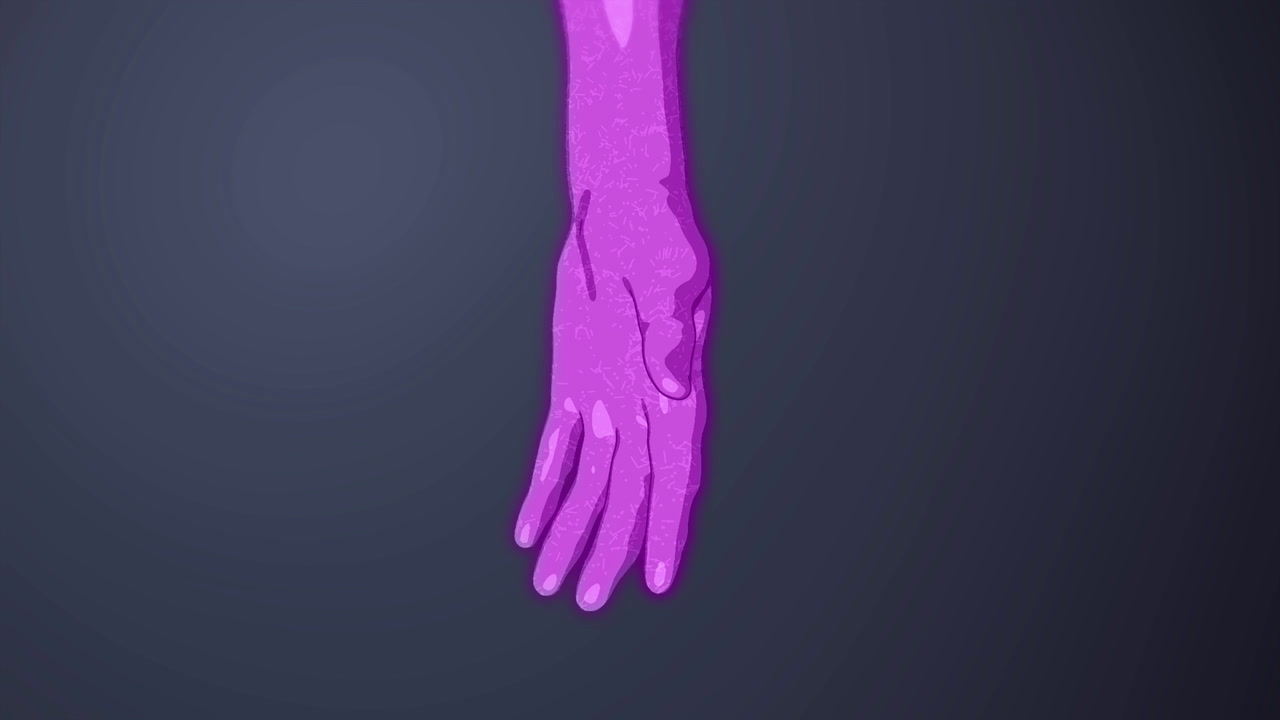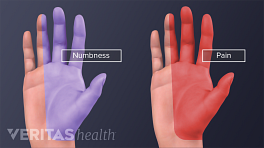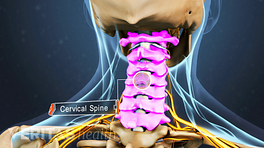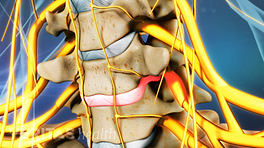Hand pain accompanied by tingling or numbness can occur in just a few fingers or possibly the entire hand. When these signs and symptoms persist and become chronic, it is likely due to an underlying medical condition.
The brain and hand communicate with each other through a vast network of nerves. The brain sends motor signals down the neck and through the arm to power the hand and fingers. Sensory receptors in the skin send signals up to the brain. Common conditions, like cervical radiculopathy, can disrupt these signals, causing hand pain and numbness.
Cervical radiculopathy involves a pinched or inflamed nerve root in the neck that results in neurological deficits. Tingling, numbness, or weakness can be experienced in the shoulder, arm, or hand. Cervical radiculopathy can also be accompanied by radicular pain that is dull, sharp, or shock-like. Different parts of the hand may be affected depending on which spinal nerve is compressed. While cervical radiculopathy typically occurs just on one side, it can occur on both sides.
Carpal tunnel syndrome occurs when the median nerve becomes irritated or compressed within the carpal tunnel, a narrow passageway that runs through the wrist and into the hand. This condition can feel similar to cervical radiculopathy with hand pain, tingling, numbness, or weakness. Unlike cervical radiculopathy, the signs and symptoms of carpal tunnel are always limited to the wrist and hand.
Another condition, called rheumatoid arthritis, is an autoimmune disease that can cause joint inflammation and pain. This condition is typically felt bilaterally, so if joints in the left hand are affected, joints in the right hand are also likely to have it. When rheumatoid arthritis becomes advanced, it can contribute to carpal tunnel syndrome and the same type of hand numbness.
Various other injuries and conditions can cause hand pain and numbness, such as diabetes or vitamin B12 deficiency.
Treatments for hand pain and numbness can vary depending on the underlying medical cause. Getting an accurate diagnosis from a medical professional is the first step toward starting an effective treatment plan.
In This Article:
- Understanding Hand Pain and Numbness
- What Causes Hand Pain and Numbness?
- Video: What is Causing my Hand Pain and Numbness?
- Cervical Radiculopathy Interactive Video









